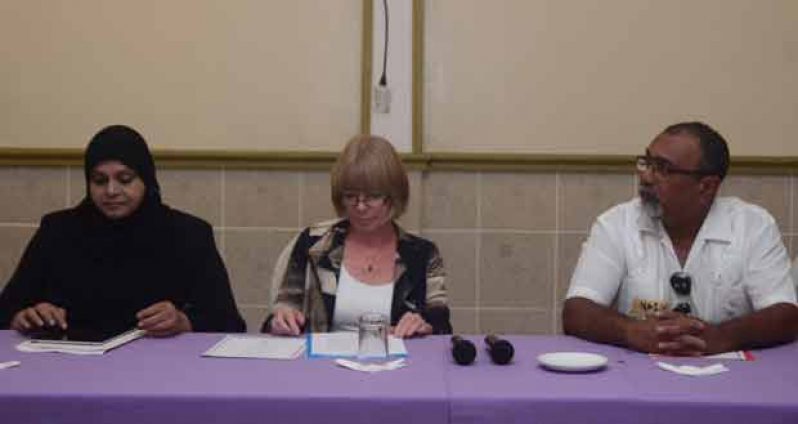THE Rights of the Child Commission (RCC) is seeking to expand its scope in the peer education programme in Guyana.
And towards this objective, the RCC is not only putting a focus on HIV/AIDS education, but is also examining other issues such as health and family life, parenting, relationship skills, sexuality and sexual orientation, gender issues, conflict resolution, stigma and discrimination, music and lyrics, suicide and the environment.On Monday last, a Peer Educators Stakeholders Consultation was held at Regency Suites/Hotel, Hadfield Street, to discuss the peer educator’s code of conduct. At this two-day consultation, the criteria for selecting qualified peer educators were to be examined.
Addressing stakeholders at the opening was Committee Mobilization Officer of the National AIDS Programme Secretariat, Mr. Nazim Hussain. In his frank remarks, he pointed to social issues confronting the youths of today, highlighting the case of a 13-year-old Enmore teen who was found dangling from a rope. He also cited the three episodes of schoolgirls fighting which he saw on Facebook. Hussain then called for urgent measures to be taken to address these issues, while noting that today many youths are ignorant of sex education and the reality of life. However, he is hoping that these issues can be addressed through this newly-implemented programme.
Adding to the presentation was Ms. Marianne Flach who is the UNICEF (United Nations Children’s Fund) representative for Guyana and Suriname. In her report, she acknowledged that Peer Education has evolved as a methodology to convey mainly information on HIV, and has now been expanded to include the emerging issues which children and young people are faced with today, such as gender violence abuse, increasing drug and alcohol use and abuse, teen pregnancy and school drop-outs.
She added that “peer educators have also proven in some cases to be more effective than adults in establishing norms and in changing attitudes, especially those related to sexual behaviour. Young people, especially girls, feel more empowered to talk about sex without the risk of being stigmatised, and this can lead to increased awareness and better sexual health practices.”
Moreover, she reiterated UNICEF’s commitment and support for this programme in ensuring that all children and young people have the right to participate in issues that affect their development.
It was also noted that while peer education can provide significant support to existing school-based programmes such as Health and Family Life Education (HFLE), it can also be helpful in reaching those children who are out of school or those who are most vulnerable.
Meanwhile, only recently it was confirmed that Guyana has the highest suicide rate of all countries in the Caribbean and South America, with the majority of deaths being among teens. It is hoped that this new strategic implementation will seek to combat such social issues.
Written By Ravin Singh
Rights of the Child Commission moving to enhance National Peer Education Programme
SHARE THIS ARTICLE :
Facebook
Twitter
WhatsApp



.jpg)











